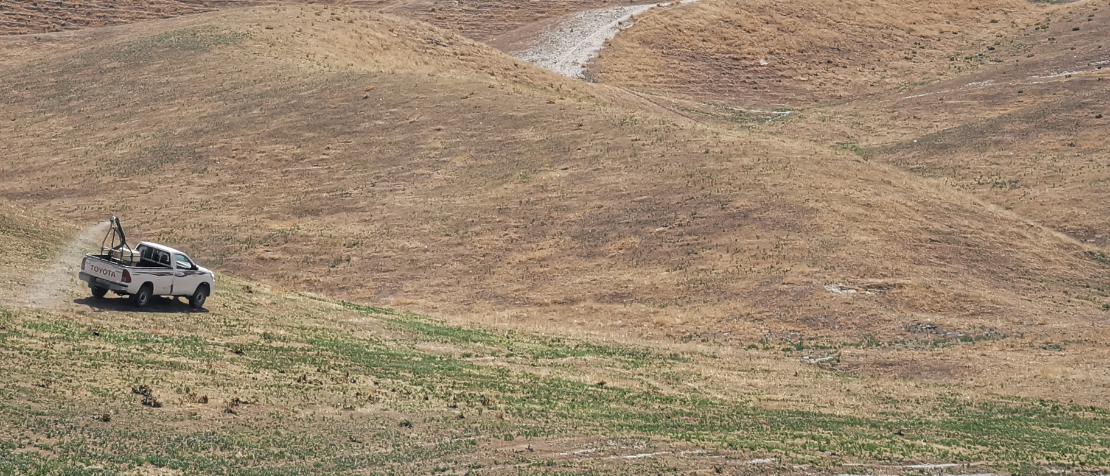FAO and Tajikistan: a new round of locust mitigation activities

©FAO/Oleg Guchgeldiyev
Locust infestations, aggravated by climate change and environmental factors, are a serious problem for agricultural production in Tajikistan, threatening food security and economic stability. The Food and Agriculture Organization of the United Nations (FAO) supports the country via regional projects as part of its “Programme to improve national and regional locust management in Central Asia and Caucasus (CCA)”.
The second phase of the regional project “Improvement of locust management” financed by the Japan International Cooperation Agency aims to bolster national and regional efforts to prevent and combat locust outbreaks. This five-year project is implemented in Afghanistan, Kazakhstan, Kyrgyzstan, Tajikistan, Turkmenistan, and Uzbekistan.
“The second phase reaffirms FAO's commitment to supporting the Government of Tajikistan and of the other Central Asian countries in addressing locust challenges effectively,” said Oleg Guchgeldiyev, FAO Representative in Tajikistan. “By fostering collaboration and providing technical expertise, FAO aims to mitigate the adverse impacts of locust infestations on food security and livelihoods, thereby securing a better production, a better health and a better environment in the region.”
FAO held a training session from 26 February to 1 March 2024 on locust monitoring and information management and reducing the negative impacts of pesticides on human health and the environment. The training was held in Bokhtar city, in southern Tajikistan, for the benefit of 29 Tajik locust experts. Alexander Latchininsky, an FAO senior locust management expert, and Nadiya Muratova, an FAO Geographic Information System expert, also trained participants in using the Automated System of Data Collection system and the Caucasus and Central Asia Locust Management system.
On 1 April, the FAO Representation in Tajikistan handed over 10 kg of the biopesticide to project’s direct beneficiary organization - the State Entity “Locust Control Expedition", along with 20 protected tablets and accessories for field data collection. Biopesticides containing the active ingredient Metarhizium acridum are particularly effective because they attack locusts only, with no negative impacts on human health and the environment. This will enable the first-ever national demonstration trial against the Moroccan locust in Tajikistan.
“The Government of Tajikistan urges continued cooperation from FAO to effectively manage the locust threat and mitigate its impact on agricultural production and food security,” said Nusratullo Nozaninzoda, head of the SE-LCE, during the handover ceremony. “For the last 12 years, we have successfully cooperated to strengthen the capacity in support of field operations during critical times of locust campaigns.”
FAO also donated to the State Entity and other relevant institutions copies of the recently published monograph “Moroccan Locust Dociostaurus maroccanus (Thunberg, 1815): morphology, distribution, ecology, population management” to help its experts learn more about the problem.
The added knowledge and equipment will help the country improve its locust monitoring and control and assist in providing early warning of locust outbreaks.
